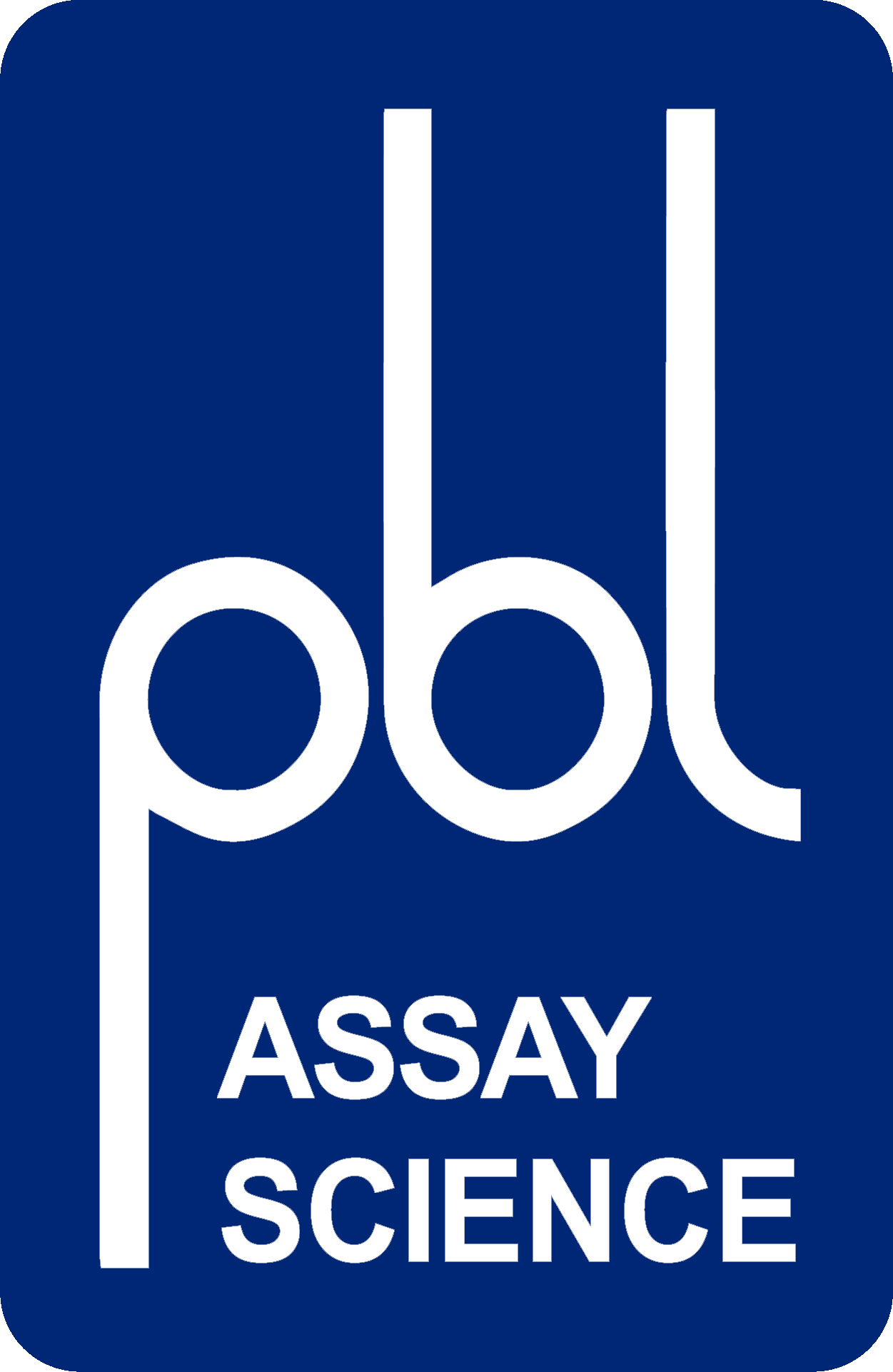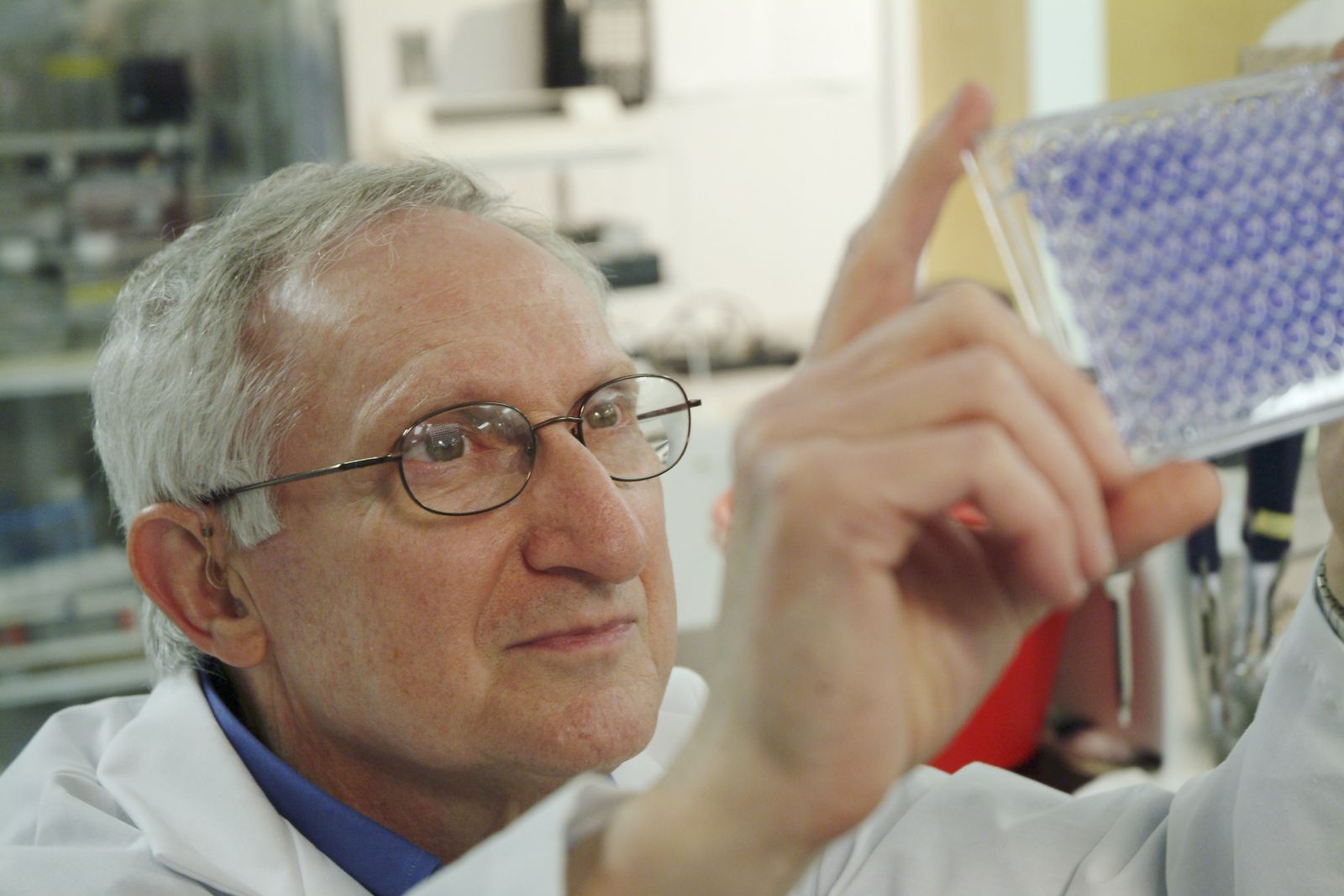
On December 22, 2016, PBL Assay Science lost one of our company's founders Dr. SIdney Pestka.
In 1990, Dr. Pestka founded PBL Assay Science with his wife, Joan, to develop cytokine assays and reagents and to expand interferon’s clinical utility in cancer and viral diseases. Today the company has expanded to 35 employees and supplies high-quality products and services to researchers around the world.
Dr. Pestka was much more than just one of the founders of PBL. He was known as the "Father of Interferon" for his seminal work on interferon, work that gave birth to a multi-billion dollar market directed at the therapy of hepatitis, multiple sclerosis, cancer, and other diseases that affect mankind. The interferon field owes much to Sidney Pestka - it would not be what it is today without his contributions. For example, Sid was the first to purify interferon alpha and beta; the first to clone mature interferons; and the first to develop a commercialized recombinant biotherapeutic—Roferon A. In the process, he developed reverse phase high-performance liquid chromatography (RP-HPLC) for protein purification.
Sid graduated summa cum laude in chemistry (1957) from Princeton University and received his doctorate in medicine (1961) from the University of Pennsylvania School of Medicine. He went on to work at the National Institutes of Health (NIH) in the laboratory of Dr. Marshall W. Nirenberg. Sid’s early work on the genetic code, protein synthesis and ribosome function led to Nirenberg’s 1968 Nobel Prize in Physiology or Medicine.
In 1966, Sid moved to the NIH’s National Cancer Institute to concentrate his research on protein synthesis. Three years later, he left the NIH for the Roche Institute of Molecular Biology, where he focused on defining how antibiotics work and proteins are synthesized and, later, interferons.
Sid was also Emeritus Professor of the Department of Biochemistry and Molecular Biology at Robert Wood Johnson Medical School of Rutgers, The State University of New Jersey, which he joined in 1986 and where he served as Chairman for 25 years. Sid’s research focused on interferons and cytokines; receptors and signal transduction; immunotherapy of cancer; and prevention, treatment and control of cancers and viral diseases.
Sid is named inventor on 270 U.S. and foreign patents and has 665 publications and abstracts in his name. Many of the inventions described in these patents have broad applications in the biotechnology and pharmaceutical industries. He has edited five books related to protein biosynthesis and interferons-several of which are classics and still frequently cited today. He holds an honorary doctorate in science from Rider University (1987) and has played an important role at the International Cytokine and Interferon Society (ICIS), where he served as secretary, vice president, and president.
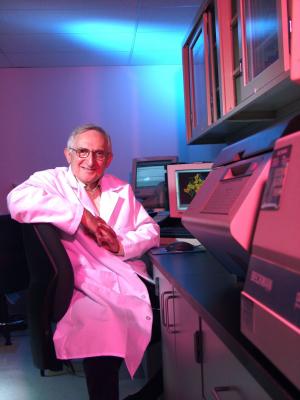
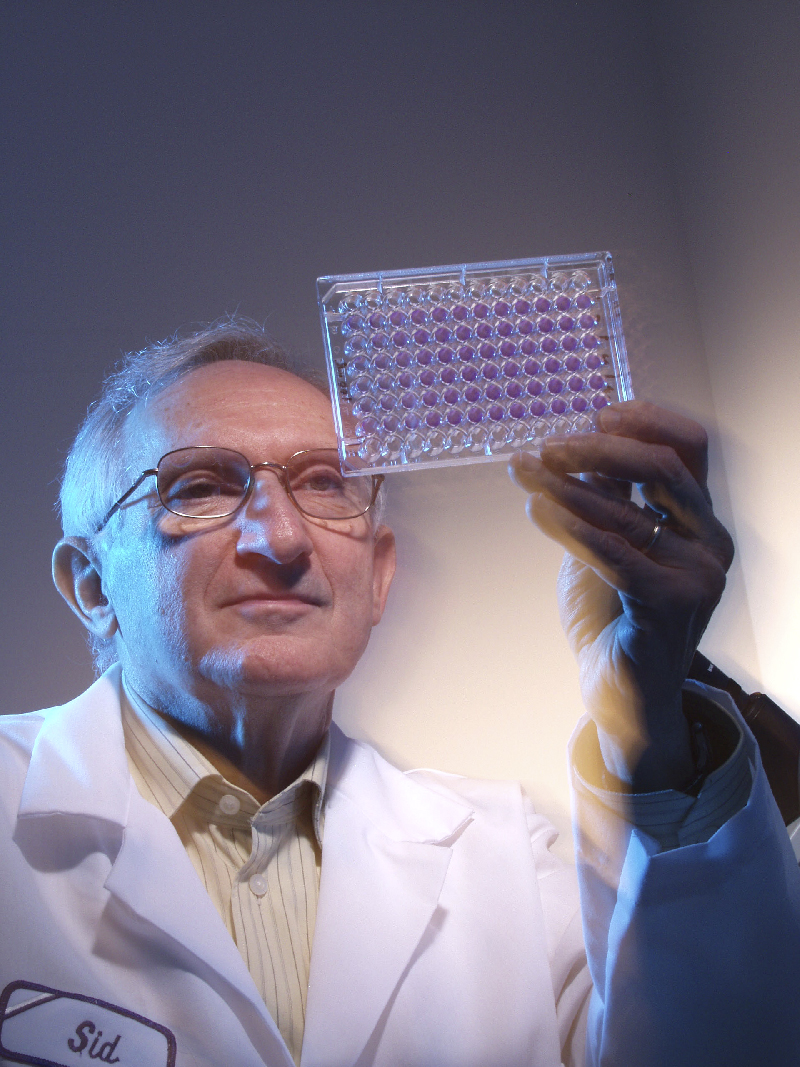
Sid was a rigorous and demanding scientist, a generous colleague and collaborator, and a successful and caring mentor. He trained many scientists over his 42 years leading research efforts at the Roche Institute of Molecular Biology and at Robert Wood Johnson Medical School. Some of these individuals became world-famous scientists in their own right; some went off to run their own companies in countries spanning the globe; some became effective teachers and mentors themselves. But all of those whom Sid trained benefitted from his insistence on building knowledge upon firm logical evidence.
While Sid could certainly come across as intimidating—particularly if he was questioning scientific methods—he was generous in sharing credit for scientific advances, even holding up his own publications to permit others to publish on the same topic at the same time. His primary focus was not on beating out perceived competitors, but in sharing credit and in ensuring fellow researchers were shown the most complete picture of developments in the field.
Sid was a warm, caring, good-humored man. He had a face that was often mistaken for Woody Allen’s, a contagious smile, a true love of laughter, and a great appreciation of the art of telling a good, clean joke. He also had a poetic side and a thoughtful and elegant way with the written word, almost exclusively using an old-fashioned fountain pen filled with his signature turquoise ink. The quintessential scientist since adolescence, he had been afflicted with dementia for the last few years of his life. During these last few years, his mantra “keep it going” directed everyone with whom he interacted to make the most of every day and do the best in everything you do. We will miss him.
"Everyone can work eight hours a day and sleep eight hours a day. It's what you do with the other eight hours that can change the course of your life."
-Sidney Pestka, M.D.
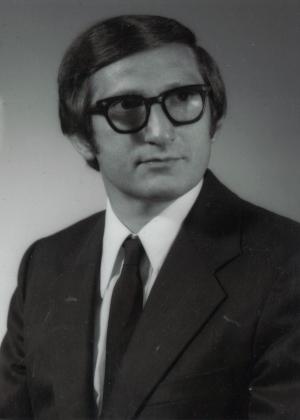
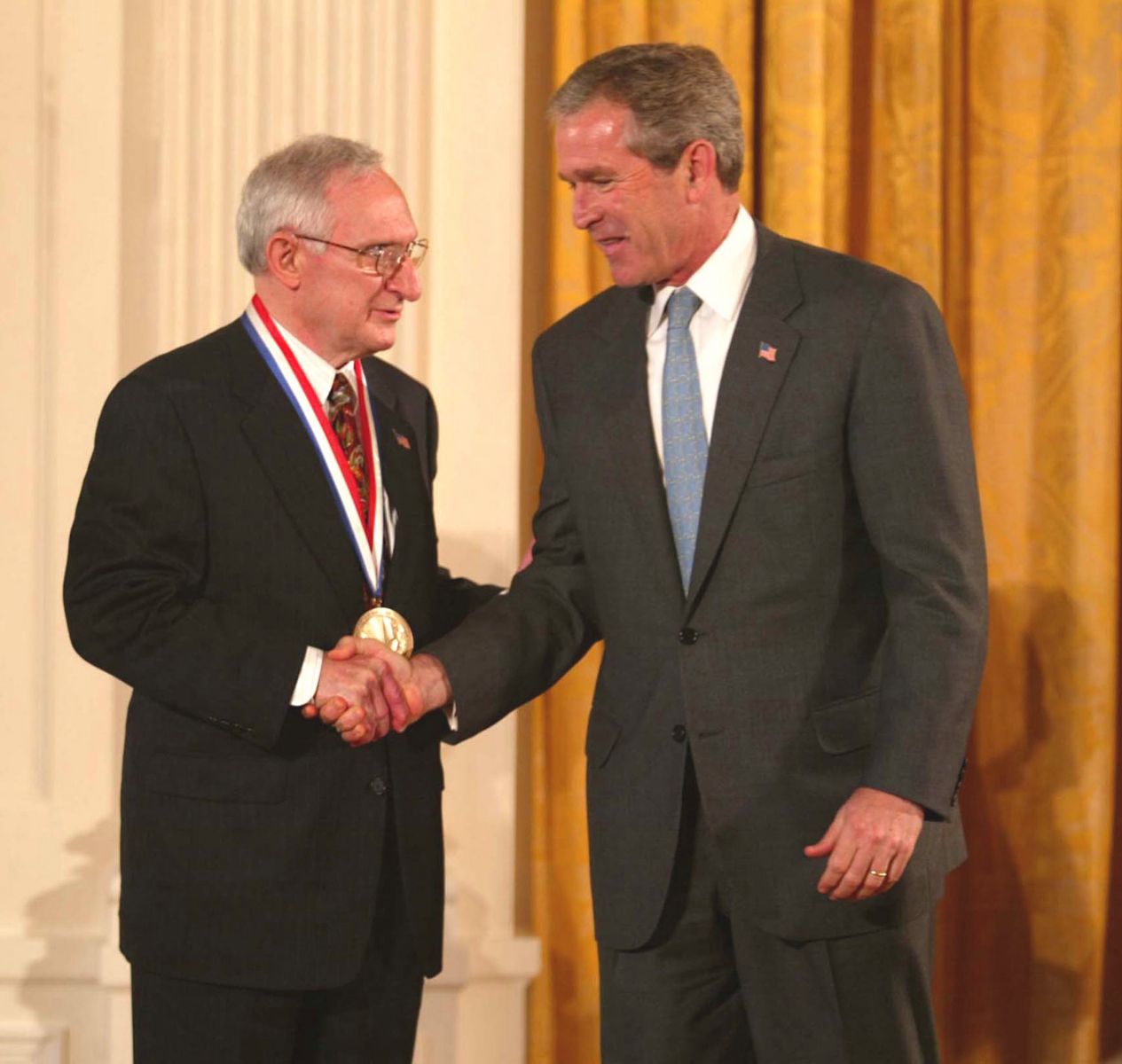
Selected Honors and Awards:
- 2001 National Medal of Technology, received from President George W. Bush, for "Pioneering achievements that led to the development of the biotechnology industry, to the first recombinant interferons, and for basic scientific discoveries in chemistry, biochemistry, genetic engineering and molecular biology"
- 2001 Seymour & Vivian Milstein Award for Excellence in Interferon & Cytokine Research
- 2004 Warren Alpert Foundation prize from Harvard Medical School
- 2006 Lemelson-MIT Lifetime Achievement Award
- 2009 Molecular Biology Medal from National Institute of Health for his role in deciphering the genetic code and the mechanism of protein synthesis
- 2010 Edward J. Ill Outstanding Medical Research Scientist Award for Basic Biomedical Research
- Induction into the New Jersey High Tech Hall of Fame and New Jersey Inventors' Hall of Fame
Selected Publications:
- Nirenberg, M.W., et al. (1963) "On the Coding of Genetic Information," Cold Spring Harbor Symp. Quant. Biol. 28, 549-557.
- Pestka, S., et al. (1965) "RNA Codewords and Protein Synthesis. V. Effect of Streptomycin on the Formation of Ribosome-sRNA Complexes," Proc. Natl. Acad. Sci. U.S.A. 53, 639-646.
- Pestka, S. and Brot, N. (1971) "Studies on the Formation of Transfer Ribonucleic Acid-Ribosome Complexes. XV. Effect of Antibiotics on Steps of Bacterial Protein Synthesis: Some New Ribosomal Inhibitors of Translocation," J. Biol. Chem. 246, 7715-7722.
- Pestka, S., et al. (1975) "Cell-free Synthesis of Human Interferon," Proc. Natl. Acad. Sci. U.S.A. 72, 3898-390l.
- Cavalieri, R.L., et al. (1977) "Synthesis of Human Interferon by Xenopus laevis Oocytes: Two Structural Genes for Interferons in Human Cells," Proc. Natl. Acad. Sci. U.S.A. 74, 3287-3291.
- Rubinstein, M., et al. (1978) "Human Leukocyte Interferon Purified to Homogeneity," Science 202, 1289-1290.
- Fisher, P.B., et al. (1979) "Tumor Promoter and Interferon Synergistically Delay the Expression of Melanogenesis in B-16 Melanoma Cells," J. Cell Biol. 83, 33a. (Abstract. CD153)
- Gutterman, J.U., et al. (1980) "Leukocyte Interferon-Induced Tumor Regression in Human Metastatic Breast Cancer, Multiple Myeloma, and Malignant Lymphoma," Ann. Intern. Med. 93, 399-406.
- Goeddel, D.V., et al. (1980) "Human Leukocyte Interferon Produced by E. coli is Biologically Active," Nature 287, 411-416.
- Herberman, R.B., et al. (1980) "Role of Interferon in Regulation of Cytotoxicity by Natural Killer Cells and Macrophages," Ann. N.Y. Acad. Sci. 350, 63-71.
- Friesen, H.-J., et al. (1981) "Purification and Molecular Characterization of Human Fibroblast Interferon," Arch. Biochem. Biophys. 206, 432-450.
- Familletti., et al. (1981) "A Convenient and Rapid Cytopathic Effect Inhibition Assay for Interferon," in Methods in Enzymology, Vol. 78 (S. Pestka, ed.), Academic Press, New York, 387-394.
- Rubinstein, M. and Pestka, S. (1981) "Purification and Characterization of Human Leukocyte Interferons by High Performance Liquid Chromatography," in Methods in Enzymology, Vol. 78 (S. Pestka, ed.), Academic Press, New York, 464-472.
- Staehelin, T., et al. (1981) "A Rapid Quantitative Assay of High Sensitivity for Human Leukocyte Interferon with Monoclonal Antibodies," in Methods in Enzymology, Vol. 79 (S. Pestka, ed.), Academic Press, New York, 589-595.
- Rubinstein, M., et al. (1981) "Human Leukocyte Interferon: Isolation and Characterization of Several Molecular Forms," Arch. Biochem. Biophys. 210, 307-318.
- Greiner, J., et al. (1984) "Detection and Enhancement (by Recombinant Interferon) of Carcinoma Cell Surface Antigens Using Monoclonal Antibodies," in Cancer Cells. 1/The Transformed Phenotype (A.J. Levin, G.F. Vande Woude, W.C. Pott, and J.D. Watson, eds.), Cold Spring Harbor Press, Cold Spring Harbor, New York, Vol. II, 285-291.
- Fisher, P.B., et al. (1985) "Effects of Combined Treatment with Interferon and Mezerein on Melanogenesis and Growth in Human Melanoma Cells," J. Interferon Res. 5, 11-22.
- Langer, J.A., and Pestka, S. (1985) "Structure of Interferons," Pharmacol. Ther. 27, 371-401.
- Rashidbaigi, A., et al. (1985) "Characterization of Receptors for Immune Interferon in U937 Cells with 32P-Labeled Human Recombinant Immune Interferon," J. Biol. Chem. 260, 8514-8519.
- Pestka, S., and Tarnowski, S.J. (1985) "Purification of the Interferons," Pharmac. Ther. 29, 299-319.
- Greiner, J.W., et al. (1986) "Differential Effects of Recombinant Human Leukocyte Interferons on Cell Surface Antigen Expression," Cancer Res. 46, 4984-4990.
- Flores, I., et al. (1991) "Human Interferon Omega (ω) Binds to the α/β Receptor," J. Biol. Chem. 266, 19875-19877.
- Sperber, S.J., et al. (1992) "Anti-HIV-1 Activity of Recombinant and Hybrid Species of Interferon Alpha," J. Interferon Res. 12, 363-368.
- Soh, J., et al. (1994) "Identification and Sequence of an Accessory Factor Required for Activation of the Human Interferon Gamma Receptor," Cell 76, 793-802.
- Cleary, C.M., et al. (1994) "Knockout and Reconstitution of a Functional Human Type I Interferon Receptor Complex," J. Biol. Chem. 269, 18747-18749.
- Ozzello, L., et al. (1995) "Up-regulation of a Tumor-associated Antigen (TAG-72) by Interferons Alpha and Gamma in Patients with Cutaneous Breast Cancer Recurrences," Intl. J. Oncology 6, 985-991.
- Sarkar, S., et al. (1995) "Injection of Irradiated B16 Melanoma Genetically Modified to Secrete IFN-α Causes Regression of an Established Tumor," Intl. J. Oncology 7, 17-24.
- Pestka, S. and Meager, A. (1997) "Interferon Standardization and Designations," J. Interferon and Cytokine Res. 17, Supplement 1, S9-S14.
- Kotenko, S.V., et al. (1997) "Identification and Functional Characterization of a Second Chain of the Interleukin-10 Receptor Complex," EMBO J. 16, 5894-5903.
- Kotenko, S.V., et al. (2001) “Identification of the Functional IL-TIF (IL-22) Receptor Complex: the IL-10R2 Chain (IL-10Rβ) is a Common Chain of Both IL-10 and IL-TIF (IL-22) Receptor Complexes,” J. Biol. Chem. 276, 2725-2732.
- Krause, C.D., and Pestka, S. (2006) “Primate interferon-alpha species and the origin and evolution of human interferon-alphas,” Eur. Cytokine Network 17: 68. (Abstract 05-29/O)
- Lavoie, T.B., et al. (2011) “Binding and activity of all human alpha interferon subtypes,” Cytokine, 56(2): 282-289.
- Krause, C.D., et al. (2013) “Improving the spectral analysis of fluorescence resonance energy transfer in live cells: Application to interferon receptors and Janus kinases,” Cytokine 64(1): 272-285.
